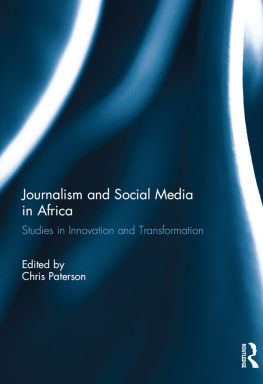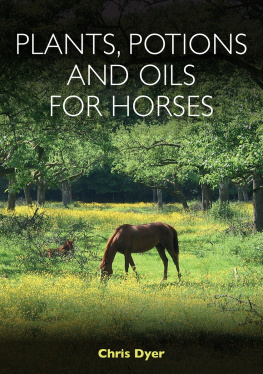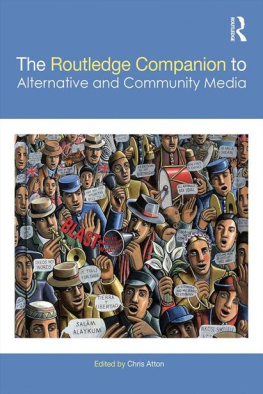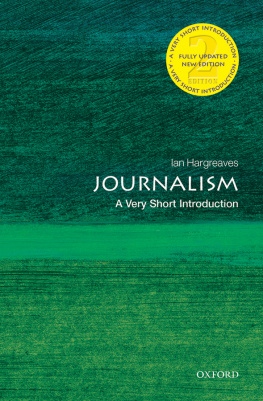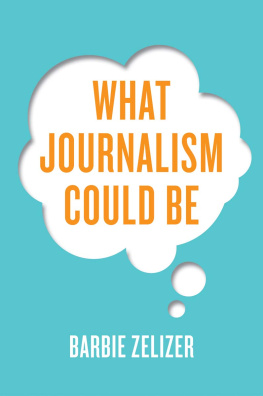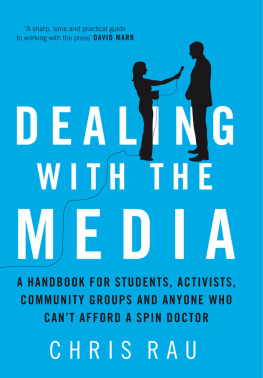Atton Chris - Alternative Journalism
Here you can read online Atton Chris - Alternative Journalism full text of the book (entire story) in english for free. Download pdf and epub, get meaning, cover and reviews about this ebook. City: Los Angeles, year: 2010;2008, publisher: Sage Publications, Ltd., genre: Politics. Description of the work, (preface) as well as reviews are available. Best literature library LitArk.com created for fans of good reading and offers a wide selection of genres:
Romance novel
Science fiction
Adventure
Detective
Science
History
Home and family
Prose
Art
Politics
Computer
Non-fiction
Religion
Business
Children
Humor
Choose a favorite category and find really read worthwhile books. Enjoy immersion in the world of imagination, feel the emotions of the characters or learn something new for yourself, make an fascinating discovery.

- Book:Alternative Journalism
- Author:
- Publisher:Sage Publications, Ltd.
- Genre:
- Year:2010;2008
- City:Los Angeles
- Rating:4 / 5
- Favourites:Add to favourites
- Your mark:
- 80
- 1
- 2
- 3
- 4
- 5
Alternative Journalism: summary, description and annotation
We offer to read an annotation, description, summary or preface (depends on what the author of the book "Alternative Journalism" wrote himself). If you haven't found the necessary information about the book — write in the comments, we will try to find it.
Alternative Journalism — read online for free the complete book (whole text) full work
Below is the text of the book, divided by pages. System saving the place of the last page read, allows you to conveniently read the book "Alternative Journalism" online for free, without having to search again every time where you left off. Put a bookmark, and you can go to the page where you finished reading at any time.
Font size:
Interval:
Bookmark:
Journalism Studies: Key Texts is a new textbook series that systematically maps the crucial connections between theory and practice in journalism. It provides the solid grounding students need in the history, theory, real-life practice and future directions of journalism, while further engaging them in key critical debates. Drawing directly from how journalism is studied and understood today, the series is a full-service resource for students and lecturers alike.
Series Editors: Martin Conboy, David Finkelstein, Bob Franklin
Radio Journalism Guy Starkey and Andrew Crissell
Journalism Studies:
Key Texts
CHRIS ATTON AND JAMES F. HAMILTON

Chris Atton and James F. Hamilton 2008
First published 2008
Apart from any fair dealing for the purposes of research or private study, or criticism or review, as permitted under the Copyright, Designs and Patents Act, 1988, this publication may be reproduced, stored or transmitted in any form, or by any means, only with the prior permission in writing of the publishers, or in the case of reprographic reproduction, in accordance with the terms of licences issued by the Copyright Licensing Agency. Enquiries concerning reproduction outside those terms should be sent to the publishers.
SAGE Publications Ltd
1 Olivers Yard
55 City Road
London EC1Y 1SP
SAGE Publications Inc.
2455 Teller Road
Thousand Oaks, California 91320
SAGE Publications India Pvt Ltd
B 1/I 1 Mohan Cooperative Industrial Area
Mathura Road
New Delhi 110 044
SAGE Publications Asia-Pacific Pte Ltd
33 Pekin Street #02-01
Far East Square
Singapore 048763
Library of Congress Control Number: 2008921708
British Library Cataloguing in Publication data
A catalogue record for this book is available from the British Library
ISBN 978-1-4129-4702-2
ISBN 978-1-4129-4703-9 (pbk)
Typeset by C&M Digitals (P) Ltd, Chennai, India
Printed in Great Britain by Replika Press Pvt. Ltd
Printed on paper from sustainable resources
For Sue (Chris)
For Cynthia (James)
Portions of are developed from parts of Attons Alternative Media (Sage, 2002) and his article Current Issues in Alternative Media Research (Sociology Compass 1, 2008).
We would like to thank the editors of this series for commissioning a book that would have been unlikely to find a publisher even a few years ago. This is due, of course, to the work of our many colleagues in alternative media studies across the world, who have done so much to develop this subject into many university curricula and to argue its importance as part of wider studies in sociology, political communication and cultural and media studies. Our personal editor, David Finkelstein, offered unfailing encouragement and valuable criticism throughout the writing. Rachel Hendrick at Sage clarified much and supported us even more. Finally, we recognize the extraordinary creative energy of countless journalist-activists throughout the world who provide not simply the grist for this book, but more generally the hope and promise for journalism(s) that contribute to a more democratic public life.
What is alternative journalism? For those encountering the term for the first time and even for those familiar with it it can appear infuriatingly vague. How does it relate to an array of similar terms such as citizen journalism, citizens media, community media, democratic media, emancipatory media, radical media and social movement media? When we turn to specific practices, there is an even wider range to consider: newspapers, magazines, radio and television stations; blogs and social networking sites; pamphlets and posters; fanzines and zines; graffiti and street theatre; independent book publishing and even independent record production. These practices are often informed by the desire to provide news, information, comment and analysis to specific, identified communities defined in geographic or socio-cultural terms (such as ethnic minority journalism, gay/lesbian journalism, or community media).
In what is the first academic book-length study of alternative journalism, we argue that what all these concepts and practices share is an emphasis on thinking about journalism in a particular way: in other words, they are primarily informed by a critique of existing ways (the dominant practices) of doing journalism. Alternative journalism proceeds from dissatisfaction not only with the mainstream coverage of certain issues and topics, but also with the epistemology of news. Its critique emphasizes alternatives to, inter alia, conventions of news sources and representation; the inverted pyramid of news texts; the hierarchical and capitalized economy of commercial journalism; the professional, elite basis of journalism as a practice; the professional norm of objectivity; and the subordinate role of audience as receiver.
Alternative journalism, at least in its ideal form, is produced outside mainstream media institutions and networks. It can include the media of protest groups, dissidents, fringe political organisations, even fans and hobbyists (Atton, 2004: 3). It tends to be produced not by professionals, but by amateurs who typically have little or no training or professional qualifications as journalists: they write and report from their position as citizens, as members of communities, as activists or as fans. (Though as we shall see, there are examples of alternative journalism where professional journalists and professional techniques are employed, often in ways radically different from their conventional uses.) Much of the work of alternative journalism is concerned with representing the interests, views and needs of under-represented groups in society. As well as being homes for radical content, projects of alternative journalism also tend to be organized in non-mainstream ways, often non-hierarchically or collectively, and almost always on a non-commercial basis. They hope to be independent of the market and immune to institutionalization. Practitioners of alternative journalism also seek to redress what they consider an imbalance of media power in mainstream media, which results in the marginalization (at worst, the demonization) of certain social and cultural groups and movements.
It is this emphasis on media power that we argue lies at the heart of alternative journalism. It is for this reason that, despite all the cognate terms used to refer to its practices, we prefer to call it alternative journalism. This is because, as Nick Couldry and James Curran have argued, it functions as a comparative term to indicate that whether indirectly or directly, media power is what is at stake (Couldry and Curran, 2003b: 7). We develop this argument in detail in , where we explore a range of theories that have been put forward to make sense of alternative media production. These include John Downings theory of radical media (Downing, 1984; Downing et al., 2001); Clemencia Rodriguezs citizens media (Rodriguez, 2001) and Hackett and Carrolls (2006) notion of democratic media activism. These studies are undoubtedly extremely useful: they offer valuable insights into the ideologies and practices of non-mainstream media. However, they share a common assumption that alternative media are primarily concerned with radical politics and social empowerment, with what Pippa Norris has called critical citizens (Norris, 1999). Once again we find ourselves in agreement with Couldry and Curran; just as they do in their own work, we wish to explore non-mainstream media that may or may not be politically radical or socially empowering (Couldry and Curran, 2003b: 7).
Font size:
Interval:
Bookmark:
Similar books «Alternative Journalism»
Look at similar books to Alternative Journalism. We have selected literature similar in name and meaning in the hope of providing readers with more options to find new, interesting, not yet read works.
Discussion, reviews of the book Alternative Journalism and just readers' own opinions. Leave your comments, write what you think about the work, its meaning or the main characters. Specify what exactly you liked and what you didn't like, and why you think so.

